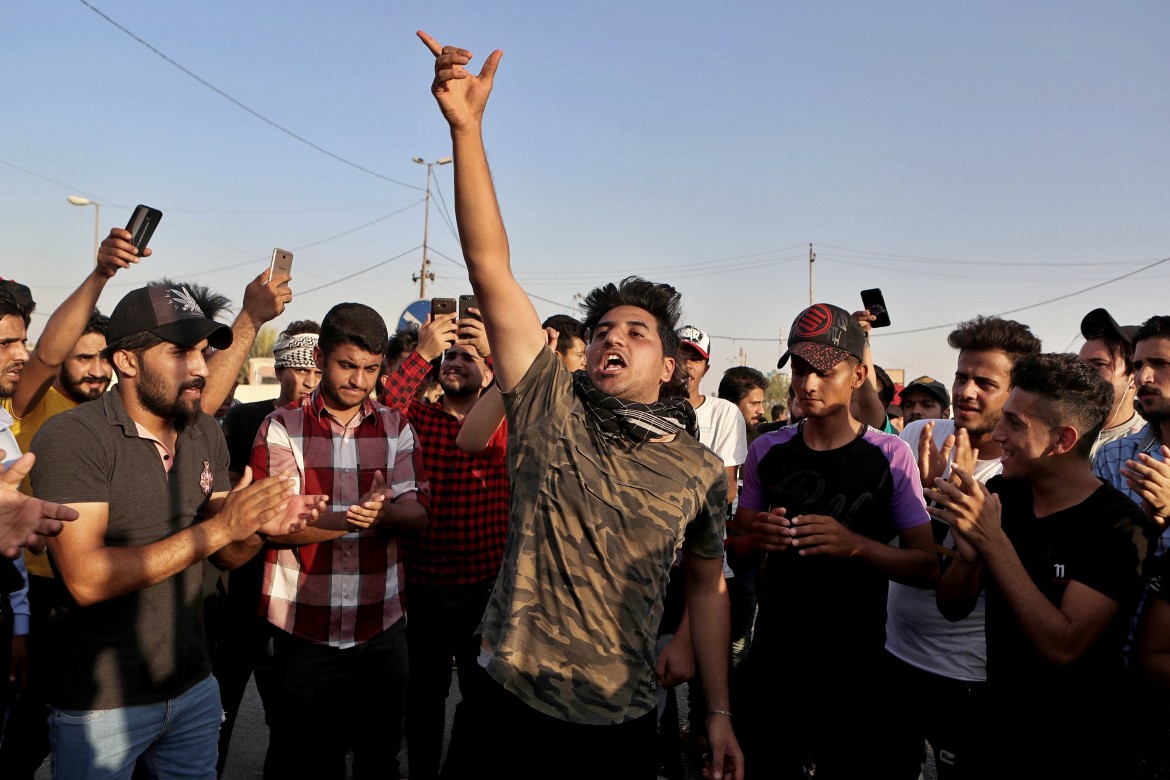Analysis
Lacking energy, Iraq bypasses Iran sanctions with ‘gas for food’ mechanism
Half the world is working to make Trump’s sanctions at least partly ineffective. However, what is making Iraq’s efforts to safeguard their vital energy imports from Iran most paradoxical at first glance is the fact that Iraq itself is among the most oil-rich countries of the world.

Circumventing US sanctions against Iran is not for the faint of heart—and not only for Europe, which is struggling with setting up the INSTEX system to trade with Tehran while bypassing Trump altogether. Even Iraq is having difficulty with this. Iran’s neighbor was at war with the Islamic Republic during the times of Saddam and Khomeini, but with which it began a process of significant rapprochement after the 2003 US invasion. With the Shiites in power, Iran has become Iraq’s political ally and trading partner, despite the bothersome US presence.
This is the reason why Washington—well aware of Iraq’s difficulties, given that it caused most of them—has exempted the Baghdad government from the requirement to comply with the sanctions, allowing them to continue purchasing Iranian gas. And not just gas: Iran is selling close to $9 billion in goods to its neighbor ever year, for an annual trade of about $13 billion.
At the moment, according to sources in Baghdad, there are ongoing negotiations between the Iraqis and the Americans aimed at creating a financial mechanism, a “special purpose vehicle” (SPV) much like the one invented over the past months by the EU, which would allow a sidestepping of the sanctions: Iraq would import gas and electricity from its neighbor, paying in Iraqi dinars deposited in Iraqi banks and managed by the Trade Bank of Iraq, set up after 2003 to operate international transactions. The Islamic Republic would have to use these dinars exclusively for the purchase of “humanitarian goods”: it would not be able to withdraw the money, but would only be able to use it to pay for medicine, medical equipment and food. Thus, it will be something like a gas-for-food scheme.
Half the world is working to make Trump’s sanctions at least partly ineffective. However, what is making Iraq’s efforts to safeguard their vital energy imports from Iran most paradoxical at first glance is the fact that Iraq itself is among the most oil-rich countries of the world (fourth in terms of reserves and second in terms of production), and has gotten back on its feet: in May, it produced 4.7 million barrels of crude oil per day, twice the average of the 2002-2018 period.
However, it is still lacking in energy, a chronic and despair-inducing situation: in June, protests started once again in Basra, one of the provinces with the most energy resources in the country, with a geographically strategic position (containing the only Iraqi port on the Persian Gulf) and hosting the largest national and international oil companies: Shell, Exxon and Italy’s own ENI.
In a repeat of the events of last year, the constant blackouts combined with high unemployment and almost nonexistent public services have reignited people’s anger: the squares have filled up with protesters, and police have been trying to disperse the crowds, calling the demonstrations illegal because they are conducted without permits, and even resorting to live ammunition, according to the protesters. The latter remember well what happened last year, when the armed forces opened fire and caused 14 deaths. Almost 1,000 people have been arrested.
It was not long before Friday became once again a day of mobilization, despite the torrid temperatures of close to 50 degrees Celsius. In Baghdad, according to the newspaper al-Monitor, the organizers of the protests are a committee of Sadrists and communists, the odd alliance which managed to win the elections in May 2018. Basra has remained more independent, with local activists who have already announced strikes like those of last year, which led to interruptions in the activities of the oil companies.
Iraq is still not energy independent, despite having more oil than it knows what to do with. It is forced to import almost 40% of its energy, 1,500 megawatts of electricity and 28 million cubic meters of gas per day from Iran alone.
While the country is looking to begin the exploitation of unexplored gas fields (Siba in Basra, Akkas in the Anbar province, probably the largest in the country, holding 5.6 trillion cubic meters, and Mansouriya on the border with Iran, where works were halted and never resumed after the occupation of a third of the country by ISIS), it is also true that 16 billion cubic meters of gas per year are wasted in the oil refineries, burned away in the process of the production of crude oil and not recovered.
The reasons for the country’s energy dependence are manifold: the high share of exports, the almost total lack of investment in the improvement and development of the production process (which would eliminate, for instance, the abovementioned waste of natural gas), rampant corruption and the very limited rebuilding of energy and water distribution networks after the 2003 war.
The government is optimistic: according to Energy Minister Luay al-Khatteb, domestic electricity production is increasing (reaching 17 gigawatts in May), and a recently signed agreement with Germany’s Siemens should help refurbish and improve the existing distribution systems and networks.
However, there are some who are blaming the current situation on the poorer classes: according to some analysts, the shortages are supposedly caused by the energy subsidies that Baghdad guarantees for the poor, which are thus “pushed” to consume more than they need. Such an “explanation” completely ignores the fact that the country has the most corrupt political system in the world.
Originally published at https://ilmanifesto.it/liraq-senza-energia-bypassa-le-sanzioni-alliran-gas-for-food/ on 2019-07-07
